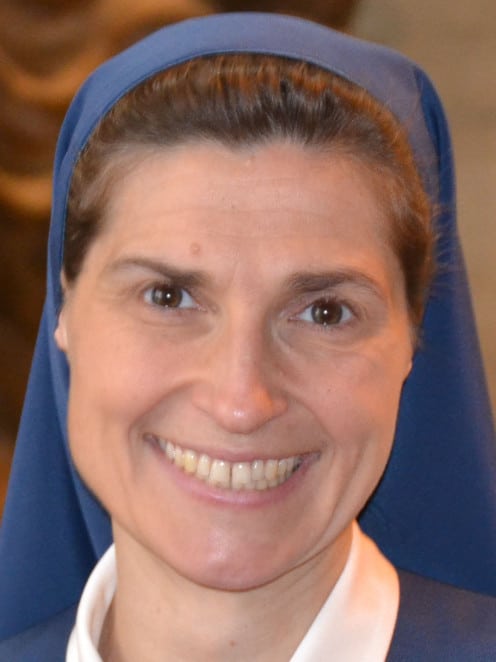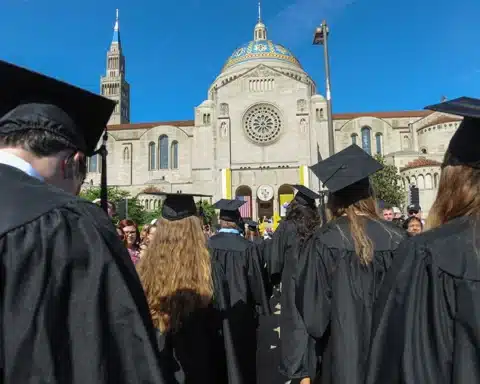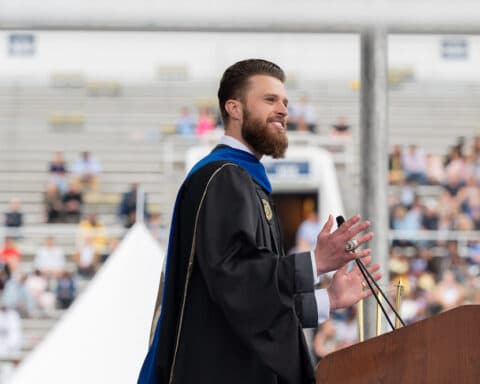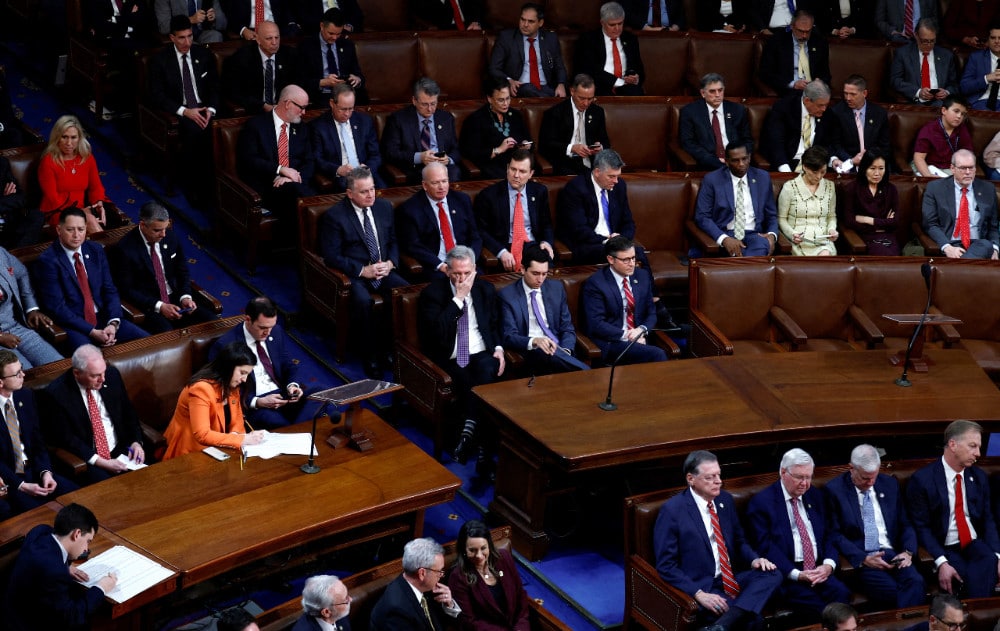
As Christians, Jesus challenges us to go one step further when he tells us to love one another “as I have loved you” (Jn 13:34). It is about seeing Christ present in the other and serving Christ in them. For graduates in a free-market society, using one’s gifts is not only to make money or to be the best version of oneself, but also to bring Christ’s light, hope and joy to others.
As a film reviewer, I often screen movies before their public debut. One delightful film has caught my imagination. The comedy “Jerry and Marge Go Large,” which will stream on Paramount+ starting June 17, tells the true story of a retired couple’s capitalistic adventures. The film centers on a factory retiree from a sleepy Michigan town who discovers a mathematical loophole in the lottery game Windfall. Along with his wife, Marge (Annette Bening), Jerry Selbee (Bryan Cranston) discovers that the more they invest in the game the greater their earnings, turning the odds in their favor.
As they test their theory, they develop their own investment group by involving the small business owners and people of the town. Their winnings are challenged by a group of students from Harvard who also discover the loophole and look to take down the competition that the Selbees present in order to increase the value of their jackpot prizes. However, for Jerry and Marge, playing the lottery becomes a fun retirement hobby they do together for other people. What could have been their personal wealth venture instead becomes an economic revival for the town. Jerry uses his incredible gift for the good of the entire community.
How do we as Christians use our gifts for the common good? It is about living each day with an other-centered focus, seeing each person as the image of Christ. Our very presence can uplift others when we give them our attention. A mom with young children who goes grocery shopping sees an elderly woman needing assistance, and along with her children helps the woman carry her groceries. A dad offers to coach his son’s soccer team. A group of young adult professionals on their day off contribute to a food shelter by serving meals, stocking shelves and distributing food. A nutritionist teaches people to care for their bodies as the temple of the Holy Spirit through healthy eating habits. A mechanic pulls over on the road to assist someone with a flat tire. A person praying in adoration before the Blessed Sacrament intercedes for the needs of the world. These are all ways we can contribute to the common good of society. They may seem simple and hidden talents, but we change the world through our character and attentiveness to the needs of others.
As graduates venture into the next part of their journey, these examples give perspective on how the Christian life of service is lived at each stage of life. The more we see Christ personified in one another, the more we realize how our gifts can be used to bring light and hope into the world. We may not win the lottery to boost up our neighbors economically, but we can offer a smile, a word of hope, a prayer and an act of love. These build character. And our gifts are given by a loving God for the common good.
Sister Nancy Usselmann, FSP, is director of the Pauline Center for Media Studies in Los Angeles. She is a media literacy educator, writer, film reviewer, speaker and author of a theology of popular culture, “A Sacred Look: Becoming Cultural Mystics.”





